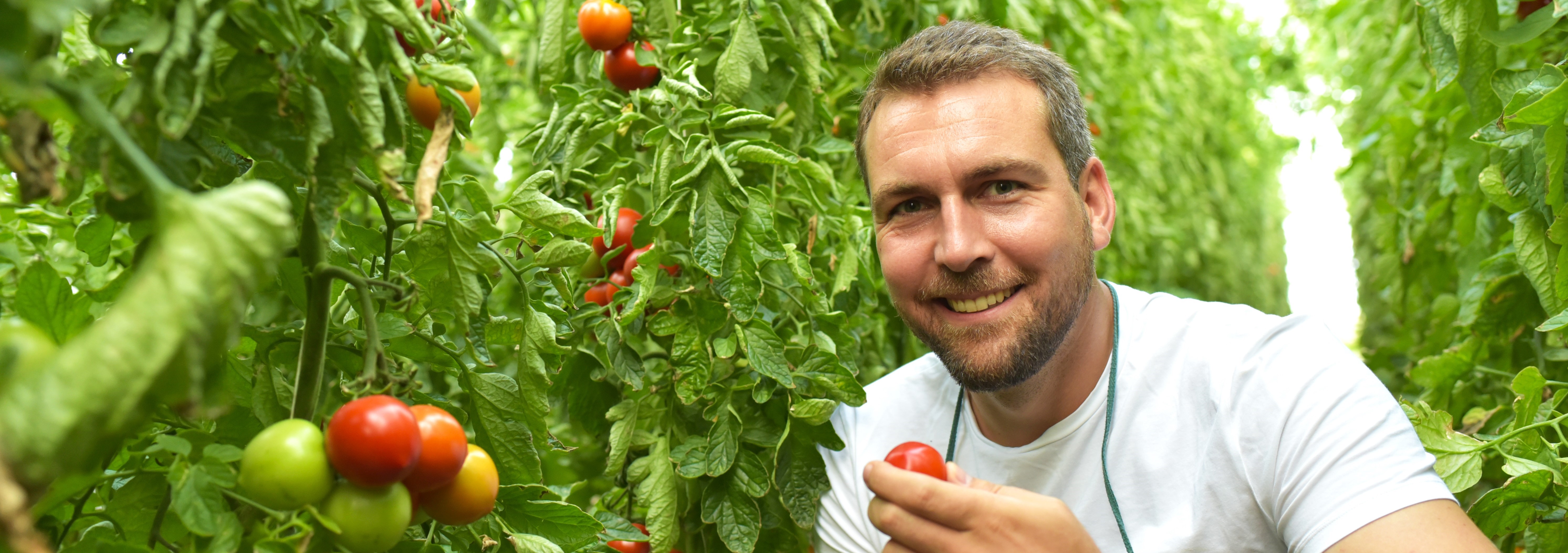
References
Hear what our customers say
Soil Resetting
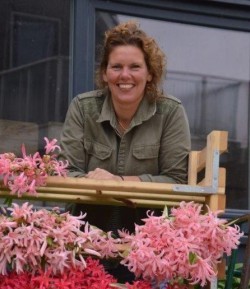
We are satisfied with the results of Soil Resetting. The Nerines are growing well, and we have not had any problems with Phytium. The biological soil disinfestation process has done its job well.
In addition, resetting the soil gives us more flexibility in our production planning, which is becoming increasingly important as we have an increasing number of different varieties, each with their own production planning.
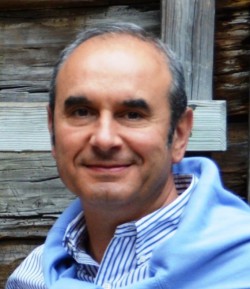
We have found this solution in “Soil Resetting” from SOILWISE. We have extensively tested the method in different conditions, over several years, and on various vegetable crops, such as tomato, cucumber, bell pepper, eggplant, zucchini, baby leaf lettuces, herbs and radish. We achieved excellent results in suppressing a broad range of soil-borne fungal diseases and plant parasitic nematodes as well as in increasing yields. Given these positive results, we decided to launch Soil Resetting on the market in Italy in 2020. We actually found a really sustainable solution for our customers.
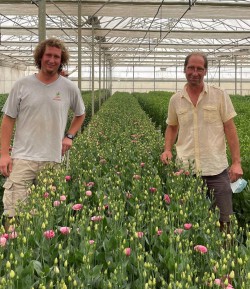
Disinfection of my soil with Soil Resetting really eliminated the fungi diseases. After the Soil Resetting treatment, I did not have any problems with Fusarium or other fungi diseases and the crops are growing stronger and have more dark green leaves. It really worked for me. Soil Resetting is more expensive than solarization, but it is more than worth the investment.
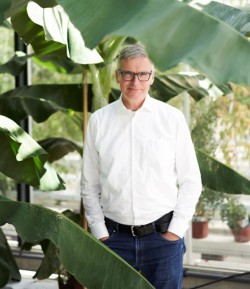
For over 10 years, I have been involved in the international research on Fusarium wilt of banana (FWB), seeking to find and assess various strategic solutions for this threat to the international banana production by (co-)developing various international initiatives and projects as well as by founding companies to fast-track solutions or to build enduring plant breeding efforts to diversify the crop.
Soil Resetting of SOILWISE is one of the potential solutions that we examined. Together with my PhD students, we have conducted very promising lab-scale tests and field pilots in the Philippines to determine the efficacy of the methodology to reduce Fusarium inoculum in the soil. The research papers describing these results are scheduled for 2021.
I see opportunities for large-scale Soil Resetting in banana cultivation to confirm our initial scientific data by collecting more extensive data sets.
Therefore, I see potential of Soil Resetting as an important biological method to knock-down Fusarium inoculum and thereby reducing the threat of FWB in various parts of the world, particularly since it is based on the application of a commercial product of constant quality.
Visit fusariumwilt.org for more information
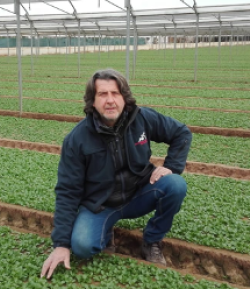
For a few years I have been testing and using this product on my farm with very good results in controlling soil-borne diseases and some weeds. I am currently using Soil Resetting because the product:
1. provides excellent control of Pythium, Sclerotinia, and Rhizoctonia,
2. supports weed control strategies (especially purslane)
3. constitutes effective biomass supply (my soils are sandy) and consequently improves the soil structure, texture, and organic substance content.
After many years of attempts with several products, I finally found the right one:
Soil Resetting from SOILWISE® / BIOGARD®!
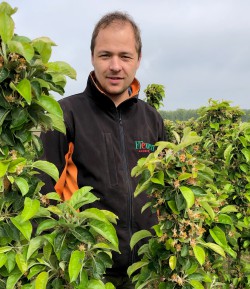
A few years ago, we started a small-scale trial with SOILWISE Soil Resetting on a plot where apple trees had already been planted. We noticed a very big difference between treated and untreated plots. It was a difference like day and night. Our analyses showed an increase in healthy soil life, allowing us to grow more resilient fruit trees. The fruit trees grow at least as well or even better on the treated soil than on other new virgin plots. We now have more homogeneous growth, firmer and larger trees with large healthy leaves.
Moreover, we see less infestation by aphids and have to carry out far fewer sprays. So, Soil Resetting really breaks down the replant disease and makes it possible for us to continue growing fruit trees in a sustainable way on the same plots, instead of moving around like a nomad from plot to plot. We can return to our own trusted land, with existing infrastructure that allows us to work more efficiently and close by. Besides the improvement in quality, this is the biggest advantage for us.
We have worked intensively with SOILWISE to achieve good results of Soil Resetting for our specific company situation. Our ambition is to make Soil Resetting a standard way of working for the entire company.
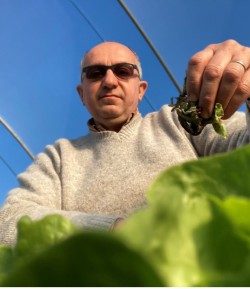
We tested “Soil Resetting” on tomato, melon, lettuce and baby leaf crops (lambs lettuce, lettuce, wild rocket/arugula), basil across Veneto, Liguria, Emilia Romagna, Lazio, Campania and Sicilia regions against Rhizoctonia solani, Sclerotinia sclerotiorum, S. minor, Fusarium oxysporum f.sp. basilici, F.o. f.sp lactucae, F.o. f sp conglutinans, Colletotrichum coccodes, Pythium spp. and root knot nematodes (Meloidogyne spp.). Achieved results were consistent within the different experimental and demonstrative activities showing that Soil Resetting, if properly applied in accordance with application guidelines, really represents a feasible, sustainable, and effective strategy for soil disinfestation purposes.
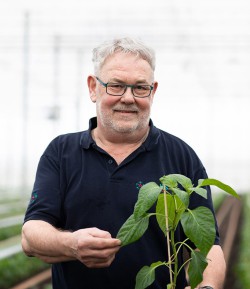
Then we came across Soil Resetting from SOILWISE (then called Thatchtec) and tested a section in our greenhouse. It was in this section that the pepper plants grew particularly well and remained free of Verticillium and other soilborne diseases, in contrast to the rest of the greenhouse. Laboratory tests also showed that the Verticillium was completely eliminated by the Soil Reset treatment.
From that moment on, we have been resetting all our greenhouses every other year. This keeps the disease pressure very low and provides a timely boost to healthy soil life each time. This leads to a better root system and a stronger and more vital crop, and ultimately, to the increased yield we achieve. In the production of tomatoes, the nematode pressure remained sufficiently low in the second year after the Soil Reset treatment. The eggs and larvae in the soil of thrips and spider mites are also killed, which ultimately leads to a much cleaner start of the cultivation. In addition, excessive populations of woodlice, centipedes and millipedes are suppressed.
After Soil Resetting, I always see a rapid return of healthy soil life, partly reinforced by the addition of the right compost mix, which allows the healthy soil fungi to re-colonize the soil quickly and more strongly. This leads to better rooting and good growth of the crop. Useful nematodes also grow quickly after Soil Resetting. They feed themselves with the dead anaerobic bacteria from the Soil Resetting and act as a solid line of defense against plant pathogenic nematodes.
We always work intensively with the people of SOILWISE to make the Soil Resetting process work well on our farm, because it is crucial to follow the protocols closely to get a good result. My advice is: if you do it, do it right!
Invasive Plant Control
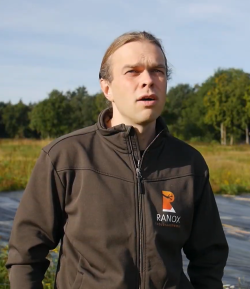
After various trials and experiments, we treated several Japanese knotweed locations with the “Roots Reset” method. Thus, in 2019, at ‘De Keijenberg’ in Wageningen, Japanese knotweed was also completely controlled with the “Roots Reset” method. This result was achieved within one year, which is considerably faster than other control methods. This is also the first method by which Japanese knotweed can be completely eliminated within one growing season, without having to remove soil. Moreover, Roots Reset is much cheaper than, for example, controlling knotweed by excavating or by means of hot water treatments.
During the Roots Reset treatment at De Keijenberg, it was investigated what the treatment does to soil life. At the beginning, immediately after, and six months after the treatment, soil samples were analyzed for the presence of soil life using DNA techniques. These analyses showed that the soil life immediately after removing the oxygen-tight barrier did not differ significantly from the reference areas. Six months after the Roots Reset treatment, the fungus-to-bacteria ratio in the treated plots was higher than in the reference areas, indicating that the soil life has adapted well to the changed vegetation.
In the coming years, we will use this natural way of controlling different species of knotweed both on infected sites and for excavated soil at land banks.
Tip: To subtitle this YouTube video: click in the video and then click to choose ‘Subtitle’ and ‘Translate automatically’ to choose your own language in which you want the text to be translated. (Computer only)
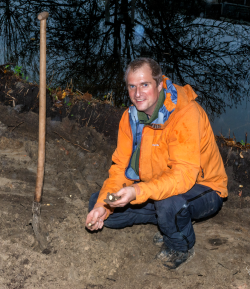
In 2021 we also applied the Roots Reset method to three other large Japanese knotweed infested areas in the Municipality of The Hague and look forward to the results of this in 2022. The sustainable and natural process of the Roots Reset coincides well with the sustainability ambitions of the Municipality of The Hague.
Scientific Research
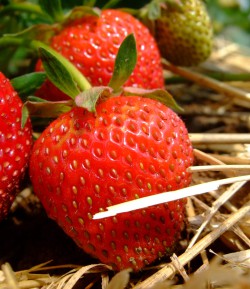

Several field trials were conducted by CerSAA on 3 nurseries in Italy. Different dosages and lead times of treatment were applied for a number of vegetable crops.
- After 3-4 weeks of treatment at a soil temperature of >25°C: 100% elimination of Verticillium, Sclerotinia, Phytophtora nicotianae and Fusarium oxysporum.
- At 15°C, the same result was obtained for Phytophtora nicotianae and Fusarium oxysporum. For Verticillium and Sclerotinia, the 100% elimination occurred only at the higher dose rates.
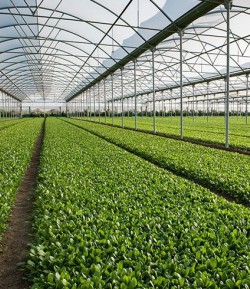

Field trials on six nurseries in Italy were conducted by CeRSAA. Crops: baby leaf lettuce, tomato and strawberry. Control treatments: chemical fumigation and steaming.
- The results of controlling Fusarium infections by Soil Resetting were similar to those of chemical fumigation and steaming.
- Yields in the reset plots were 10-20% higher (depending on crop and treatment) compared to chemical fumigation and steaming.
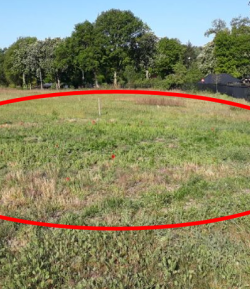

In the study, a field trial was conducted at the Keijenberg in Wageningen; on a site with a heavy infestation of Japanese knotweed. 3 sites were treated with the Roots Reset method.
- On 2 of the 3 plots, 100% elimination of Japanese knotweed was achieved.
- On the third plot, some roots showed regrowth, which was the result of a leak in the plastic film that occurred during the treatment.
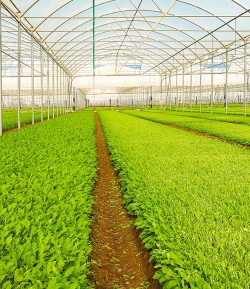

The research focused on the efficacy of Soil Resetting against various types of nematodes and Verticillium dahliae. The research was conducted in collaboration with Agrifirm and Eurofins. The treatments took place with three different dosages and with two different treatment durations (4 and 6 weeks respectively). The control treatment was carried out with Metam Sodium.
- In all cases, Metam Sodium had an efficacy of 80-90%. Soil Resetting gave better results in all treatment scenarios.
- Root knot nematode (Meloïdogyne chitwoodi): was no longer detectable after treatment with Soil Resetting
- Potato cyst nematode (Globodera spp): >99% elimination by Soil Resetting
- Stem nematode (Ditylenchus dipsaci): > 99% elimination by Soil Resetting
- Verticillium dahliae: > 99% elimination by Soil Resetting
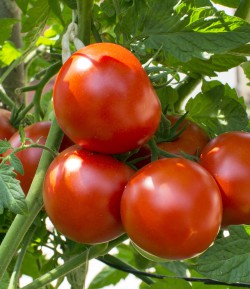

In this research, the efficacy of Soil Resetting was tested against Verticillium dahliae and root-knot nematode (Meloïdogyne hapla) at Van Schie Organic Tomato and Pepper Farm. Due to Verticillium and nematode infestation, production had declined to about 55% of normal levels in previous years. The company was in a dead-lock situation.
- Verticillium dahliae: > 98% elimination after 3 weeks and 100% after 4 weeks Soil Reset treatment
- Root-knot nematode (Meloïdogyne hapla): > 99% elimination
- Yields 9% above normal and fewer problems with Botrytis infestation.
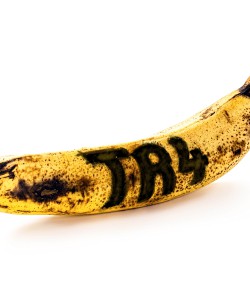

The research tested the efficacy of Soil Resetting against Tropical Race 4 (TR4) in banana - Fusarium oxysporum f.sp. cubense (Panama disease). This Fusarium poses a serious threat to global banana production. The research was conducted in the Philippines. Several field trials in a banana plantation were applied with 2 treatments on 3 plots.
- Different treatments showed a 20x to 100x reduction of TR4 chlamydospores, depending on the treatment.
- 3 months after new planting, there were no infections of TR4. However, in one of the treated plots, where the plastic film was damaged during the treatment, an infection of TR4 was observed.